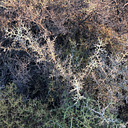What the city needs?
What city and citizens typically may need? It depends a lot on the history of a city, on what a place itself gives to the city and how it can be incorporated in bodies of people, who live there.
In many cities, constructed with the general plan, it seems that people often do not have a choice, but just adapting to the current conditions of life and structure, which exist already in those cities.
We propose the classification of how cities can be mapped, explored depending on the main criteria of a) historical development, b) structure (geometry and topology). Our main proposition is based on the idea that cities development cannot be disentangled from the cities history and how people live in the city.
Class 1: cities-history-with-rigid-periods (Barcelona, Manchattan Athens as example). These types of cities inherited some of the rigid substructures in them, which was characterized by rigid city-grid construction. People in those cities
Class 2: cities-scale-free-subparts (Paris sub-parts, such as Montrieul). These cities typically kept some parts of them and managed to sustain and resist rigid structures, preserving non-structured center, similar to the village-like structures of sub-regions of old city centers.
Class 3: cities-monasteries (Kathmandu, Rishikesh), which are typically those cities, which do keep a lot of rigid structure, yet there is another significant dimension of a city, which means that there are many citizens, which build temples, churches extending the physical space with the non-physical spiritual spaces.
The possible critic of such classification may be related to the fact that there are much more dimensions according to which cities can be characterized.
References:
Y. Asgari, J.Bara, E.Bokanyi, (…) M.Mazzamurro, L.Tupikina
“The effect of infrastructure on social connectivity” (CSS 2022)
Dekker, A. N. Medvedev, J. Rombouts, G. Siudem, L. Tupikina, “Modelling railway delay propagation as diffusion-like spreading”, EPJ 2022
